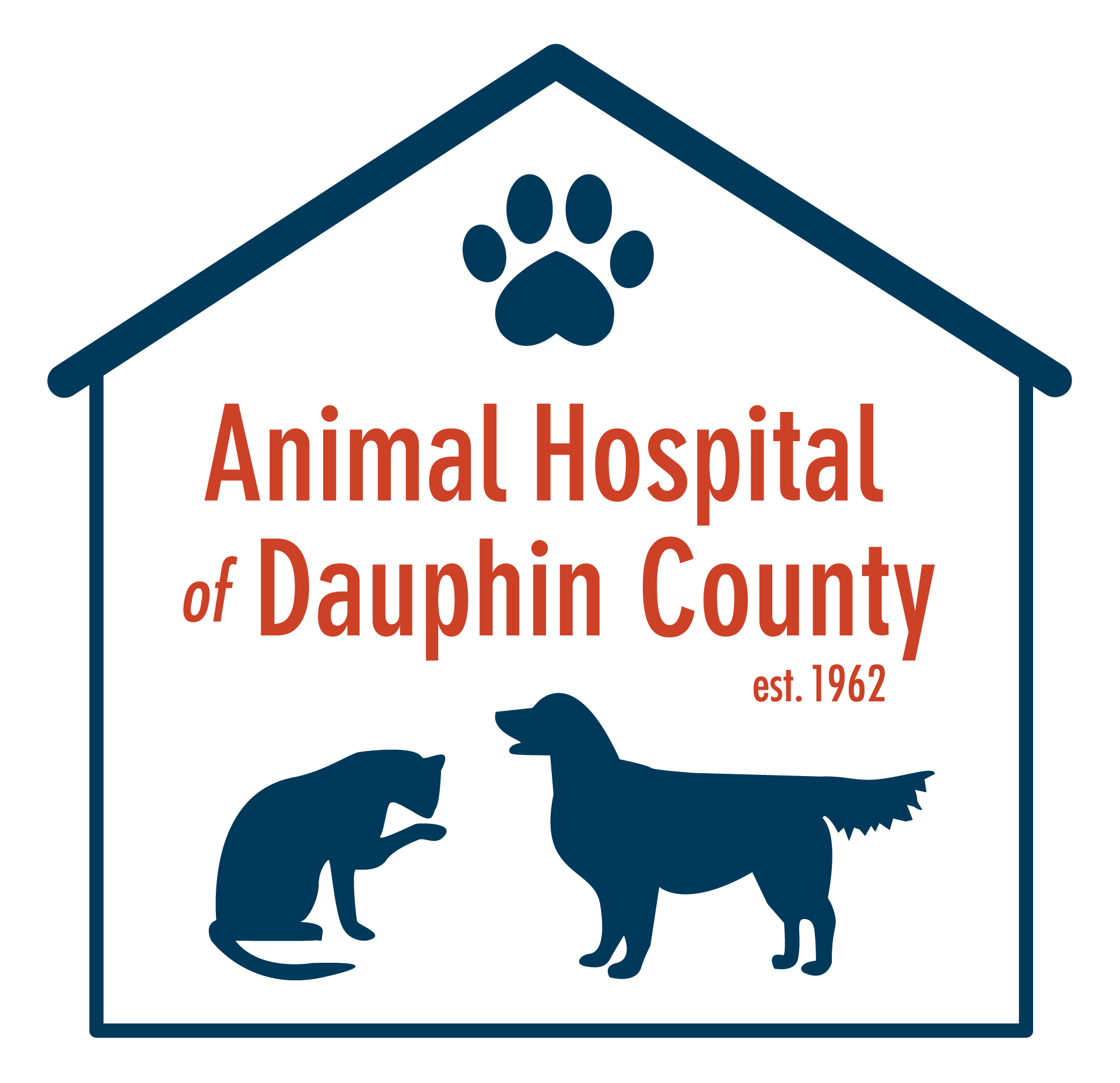Spring is in the air! The weather is getting warmer and we are starting to head towards those summer months. With the warmer weather comes the flowers blooming, pools being opened, longer days outside, summer vacations, and also those annoying bugs come back from hiding away for the winter. Mosquitos are one of those bugs. Possibly even the most annoying of the insects to come out in the warmer months. April is National Heartworm Prevention Month, so this blog is to inform you of all of the basics of Heartworm in dogs and cats. Many people still only think that heartworm is a concern in the southern U.S. which sadly is incorrect. Heartworm is found in all 50 states and that is why EVERYONE that owns furry friends should be knowledgeable about the basics of heartworm disease.
Heartworm disease is a serious and even fatal disease that can affect dogs and cats. This disease is caused by worms that infect the blood and live in the heart, lungs and blood vessels. This infection can cause heart failure, lung disease and cause other organs in the body to be compromised.
Heartworm disease is transmitted by mosquito bites. Mosquitos get infected by biting animals that have been infected with heartworm and currently have the baby worms or microfilaria living in their blood stream. When that infected mosquito bites another non infected animal the baby worms enter that animal by the bite wound.
The life cycle of heartworms simplified:Mosquito bites infected animal. Baby worms that are now in the mosquito develop into infective larvae stage over 10-14 days. Infected mosquito bites non-infected animal. Larvae are transmitted to non-infected animal through mosquito bite wound. The larvae then live in the tissues for around 2 months while developing. The adult worm is now living in bloodstream and heart for the next 4-5 months while it reaches full maturity. Mature worms now live in heart and bloodstream and can start producing larvae that can now infect another mosquito. Mosquito bites the now infected animal and the life cycle repeats.
Heartworms can live for 5-7 years in dog and 2-3 years in cats. Once an animal is infected with heartworm it can take months for symptoms to appear.
Canine symptoms you may see could be the following:
- mild persistent cough
- reluctance to exercise
- fatigue after mild activity
- decreased appetite
- weight loss
- swollen abdomen(extra fluid)-severe cases
- caval syndrome-blockage of blood flow-severe cases
Feline symptoms may include:
- coughing
- asthma-like attacks
- periodic vomiting
- loss of appetite
- weight loss
- difficulty walking/fainting
- fluid accumulation in abdomen
Diagnosis is made by a blood test looking for heartworm proteins. Cats are harder to diagnose and usually require a special blood test and even ultrasound/x-rays.
While it is true that the southern states are more known for heartworm infections solely because the temperature is warmer longer periods of the year. Warm weather = mosquitos. Heartworm disease has been diagnosed in every state of the US. The incidence for heartworm has grown dramatically in the last 5-10 years.
Current recommendations is year round heartworm prevention for all dogs and cats in all states. There are many options for preventives. The ones that we use at AHDC are-Heartgard (dog), Interceptor (dog), and Revolution (cats/dogs). These preventives also protect against certain intestinal parasites. Revolution also protects against fleas, and some ticks in dogs.
Testing should be done for heartworm disease every year, or before restarting prevention if a dose was missed. Even if your pet is on a preventative year round, testing should still be done to be sure of product effectiveness of prevention. Testing can be done at the vet office with a small amount of blood and results are available in as little as ten minutes! Some of the companies that sell preventatives will pay for all or a portion of treatment cost if proven that animal is on year-long prevention with no missed doses and has yearly testing documented in their medical records. Some of the medications can be harmful to animals that have active heartworm infections, which is why testing is required if doses are missed.
Treatment for heartworm is very expensive and required to prevent death from large worm burdens. Sadly there is no treatment approved in cats-the only way is prevention! Treatment can range in cost from $1200-$2000, and includes bloodwork, x-rays, multiple injections, oral medications, and many, many vet visits. When comparing cost of treatment vs cost of prevention there should be no question! Prevention is usually less than $300 for a whole year of protection. Prevention is the way to go!
As you can see it’s a little difficult to condense all the information of heartworm disease into a short blog, but all the information is extremely important and we want everyone to be fully educated! If interested in more information on preventions we have available, please contact our office to help your pet be the healthiest they can be!
